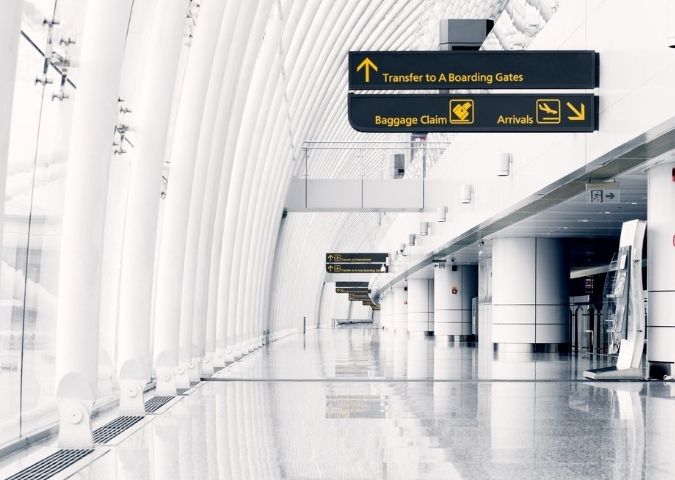Turkey
For a trip to Turkey, you need a valid visa. Which type is suitable for your travel plans and whether you can also enter Turkey with an E-Visa depends on a number of factors. We support you in applying for your electronic travel authorization for Turkey.
Country facts
Are you planning a vacation in Turkey? Then you're looking forward to the azure blue sea, heavenly beaches, ancient buildings, and excellent food! But before you go, let us give you some essential Turkey travel tips.
Quick facts Turkey
- Location: Near East
- Area: 783,562 km²
- Currency: Turkish lira (TRY)
- Official language: Turkish
- Population: approx. 84 million
- Capital city: Ankara
Climate in Turkey
The climate in Turkey is mainly dry and warm but varies from maritime through mediterranean to subtropical between the Black Sea, the Aegean Sea, and the Mediterranean Sea.
Turkish winters tend to be mild but can be snowy, especially in the coastal regions and in the mountains. You will experience the highest temperatures in southeastern Anatolia or on the Aegean Sea, where it can get almost 50 °C in summer. The water temperature then averages 23 °C in the north and 28 °C in the south.
Landscape and nature in Turkey
Turkey's diverse landscape features gorgeous coasts and beaches, vast hilly landscapes, forests, and steppes. Once you leave the megacities of Istanbul, Ankara, and Izmir behind, you can choose from 41 national parks.
Away from the touristy beaches, Turkey has thermal springs, vineyards, ancient sites, and diverse wildlife with camels, dolphins, bears, and wild cats.
Entering Turkey
For a trip to Turkey, you need an e-Visa or visa. Also, check the current entry requirements for Turkey before you travel.
Getting around Turkey
The best way to get around in Turkey is by car because public transport is often missing. For longer distances, you can also use the well-developed domestic flight network.
Attention
When walking in Turkey, be extra careful: the sidewalks here are obstacle courses - and in many places, they don't even exist.
Means of payment in Turkey
In Turkey, you can pay with your credit card in many places. However, you will get much further with cash as it allows you to make a bargain in one of the world-famous Turkish bazaars, for example.
Convenient
In addition to the Turkish lira, it is now also possible to pay with Euros in many places in Turkey.
Travel and safety tips for Turkey
Since the local security situation can change spontaneously, keep up to date with current events and forecasts during your trip with the help of news and weather reports.
Health information for Turkey
No vaccinations are required for entry into Turkey, but travel vaccinations against hepatitis A, hepatitis B, and rabies are recommended.
Adhere to food and drinking water hygiene in Turkey to prevent diarrheal diseases. Do not drink tap water or water of unknown origin, wash your hands before eating or preparing food, use drinking water even for brushing teeth and washing dishes, and protect food from flies.
Mosques in Turkey
Hagia Sophia, with its seemingly free-floating dome, was once often referred to as the eighth wonder of the world. Today, the impressive building from late antiquity is on the UNESCO World Heritage List and is an absolute must-see for travelers in Istanbul. Yet the Turkish metropolis on the Bosporus has another gem to offer: the Sultan Ahmed Mosque, better known as the "Blue Mosque."
Archaeological sites in Turkey
Numerous ancient sites bear witness to the thousands of years of history of Turkey, which exercised a great influence in the ancient world in the past as the Ottoman Empire. Among the most exciting archaeological sites in Turkey are the excavation site of Troy, the ruins of the port city of Ephesus, the Temple of Athena in Assos, and the theater of Pergamon.
Landscapes in Turkey
Turkey is full of breathtaking and unique landscapes. Who hasn't heard of Cappadocia's magical rock formations that stretch into the beautiful Göreme National Park? Equally impressive are the snow-white limestone terraces of Pamukkale in southwestern Turkey, which from a distance look like an iceberg in the middle of the plains.
Culinary highlights in Turkey
Turkish cuisine combines Asian, Oriental, and Mediterranean flavors and is rich in pasta, meat, fish, vegetables, and desserts. Among the most popular Turkish delicacies are börek (puff pastry), kebab (grilled meat), baklava (pastry), dolma (stuffed vegetables), mantı (stuffed dumplings), and pilaf (rice dish).


